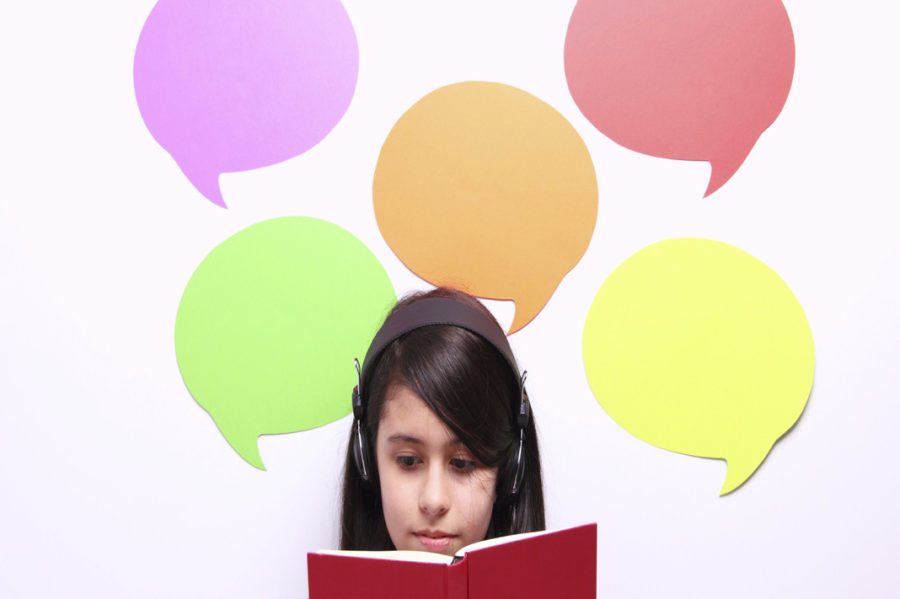It can be difficult to raise bilingual children, particularly when living in a place where the general public doesn’t speak your native tongue. It is important to be able to communicate effectively, as the world becomes a space where boundaries between cultures are becoming more blurry. Nevertheless, it will continue to help your child in the long run as it is difficult to give your child the proper type and the correct amount of exposure. Keep scrolling down for the tips to raise bilingual children, and give you advice on how to support your child along the way.
Tips To Teach Your Child Two or More Languages
All children possess different characteristics and abilities and the way they learn is different. There is therefore no standardized method for teaching different languages to all children. The education of bilingual children is based on four standard methods. Here we address the four most common approaches considered best in early childhood bilingual language development:

1. One Person, One Language
This approach consists of one individual who speaks a language to the child while another person speaks it in a different language. For example, your partner can always speak to your child in Hindi, and you can always speak to him or her in English. If this technique is used, your child should be equal in both languages so that he or she can eventually acquire them. If the family lives in Karnataka, they will take Kannada once they go to school and speak three languages.
2. Time and Place
A family may use the method of speaking a certain language for certain specified periods. You and your wife, for instance, speak to your baby in English in the morning and afternoon and you talk to him in your native language in the evening and at night. Another way to deal with this includes assigning the various languages on some days. One language could be allocated Mondays, Wednesdays, or Fridays, and the rest could be allocated to the other. You may also define locations, and if you speak to your child in public, you may speak to him in English while at home in your mother’s language.
3. Mixed Language Policy
In this way, parents can communicate with their children in a language suitable for their situation. For example, you may speak to your child in a language mostly needed for school assignments and homework and you may talk to him in your native language when addressing personal issues.

4. Minority Language at Home
In order to learn all languages, children will need help. In this way, you and your wife use the minority language at home, while the child uses the language used by the public outside. You can, for example, talk to your kid and learn English from people outside, schools, and other media, such as English films, music, and reading.
Tips To Raise Bilingual children
Here are some tips to raise bilingual children, and give you advice on how to support your child along the way.
1. Community Activities
- Check for schools, kindergartens, or multilingual and bilingual programs that support the use of your language by your children.
Speak the same heritage language with other children.
Organize visits to or from language speakers. If you can, you can enhance your child’s interest in culture and language skills by visiting countries where people speak your language.
Go to the library and borrow in your language CDs, DVDs, photo books, old-fashioned novels, and magazines.
2. At Home
- In your language, listen to radio programs like popular music programs and teen channels.
- You can encourage your children to communicate with them through a Video Message app or online if you have families or friends who live abroad.
- Just think about what attracts your child – football, music, television, cooking and so on, for example. Try to include your language in these interests. For example, you might find your child’s favorite recipe, or your community’s traditional recipe, and cook it together using your language only.
- Watch movies or sport in your language – for instance via satellite TV or streaming services. Often you can turn the audio or the English text subtitles into other languages.
- Help your older child or teenager find fun, engaging online communities in other languages. Only keep in mind pre-teen Internet security and internet protection for teenagers.
3. Play And Games
- In your language, read and tell a story, and inspire your child to join in. Using your dress-ups and be imaginative.
- Play games in your language, particularly games that focus on language, like ‘I spy,’ ‘Who am I?’ “And the memory.
- Sing songs, dance, and play music in your own language. Children enjoy music, and melody is a perfect way to make them recall.
- Look for your child’s word game applications in your own language.
Benefits Of Raising Bilingual children
In contrast with monolingual individuals, bilingual children and adults enjoy several advantages. Here are some of the benefits that come from being bilingual:
- They have better attention and are much more able to handle distractions
- They are more competent and more capable of problem-solving
- A bilingual person’s brain is aging slower than those who can only speak one language
- Dementia is delayed in people who are bilingual by about four years
- They can connect with more people, they can create more meaningful bonds
- They have more jobs prospects and higher salary benefits
- A bilingual individual will understand and comprehend new concepts more
- They are more open to numerous people
Children are often highly influenced by peers, and in places they live what is considered cool. Your child may feel more comfortable when speaking in the language spoken by the citizens of the country or state in which you reside, rather than speaking in your native tongue. He could feel he could make more friends of him speaking a specific language, and he’ll want to fit the crowd. However, if you talk to him regularly in your native language, he can only retain his language skills and enjoy the advantages of being bilingual.
Also Read: Ways to Help Your Child’s Language Development













